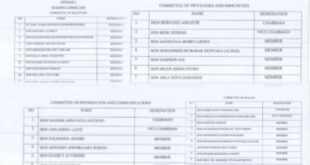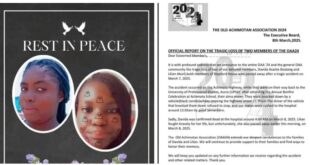A global coalition against corruption, Transparent International, has called on African states to address corruption, especially in the delivery of basic services.
According to the coalition, corruption in basic services delivery, like housing, water, sanitation, education, health, humanitarian responses, and judicial systems, tends to mostly affect the poorest of citizens.
In a letter addressed to the African Union on Anti Corruption Day, Transparent International noted that the affected persons “depend on these public services that particularly disadvantages persons living with disabilities, women, and children. Similarly, corruption in land management systems exacerbates inequalities by violating the fundamental rights of local communities, particularly vulnerable groups.”
“We urgently remind African leaders of our 2018 call to the AU to promote transparency and accountability in the delivery of basic services, land administration systems and justice systems and end impunity for those convicted of corrupt practices.”
Transparent International also called on AU’s member states to create mechanisms that would aid in collecting complaints from citizens who report corruption-related crimes.
Among other things, they suggested that these mechanisms should also strengthen whistleblower protection, notably through the adoption of appropriate legislation in accordance with international standards.
The African Union Anti Corruption Day is marked every year on June 11. The idea is that, on the said day, concerned Africans pause to reflect on anti-corruption progress in their communities, what is working, what is not, and what remains to be tried.
The date July 11 marks the day the African Union (AU) adopted the African Union Convention on Preventing and Combatting Corruption (AUCPCC) in Maputo, Mozambique on 11 July 2003.
In a statement published on the AU website in 2021, the Union noted that Africa loses more than US$50 billion annually through illicit financial outflows, according to the High-Level Panel on Illicit Financial Flows from Africa.
They stated that the African Anti-Corruption Day provides an opportunity to reflect on the role of corruption in all this.
“For African resources to illicitly wind up in foreign banks, many people will have played a role. Equally, schemes to extract Africa’s mineral resources while leaving little value to the host country typically involve a network of people and companies, both in and outside Africa. This also means that existing anti-corruption safeguards failed to prevent the outflows.”
This year, the African Union Advisory Board on Corruption will lead the event under the theme “Strategies and Mechanisms for the Transparent Management of Covid-19 Funds”.
Master Of Ceremony (M.C) available for all your events.

Source: MyGhanaMedia.com
Send your news stories to myghanamedia@gmail.com and Chat with us via WhatsApp on +233 200818719
 MYGHANAMEDIA.COM Best Source Of Latest News
MYGHANAMEDIA.COM Best Source Of Latest News





